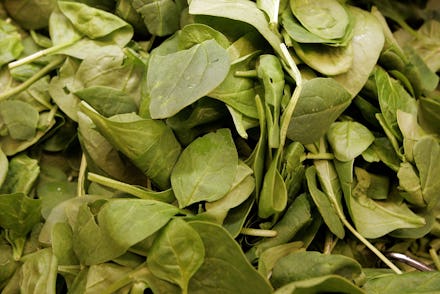88% of food recalls are vegetables. Here's why that doesn't matter.

If you think there's an overwhelming amount of vegetable recalls, it's not all in your head. A whopping 88% of food recalls from April to June 2016 were vegetables, according to a recent study from Stericycle ExpertSolutions, a company that helps manufacturers recall food and other goods.
In the last month, the Food and Drug Administration has recalled frozen corn, alfalfa sprouts, frozen green beans and frozen mixed vegetables.
Do veggie recalls mean eating vegetables is dangerous? Not so fast, veggie opponents. Here's what you need to know about that scary-high percentage.
What's with 88% of food recalls being vegetables?
This number is high because a large portion of our food supply happens to be produce, Bob Brackett, vice president and director of the Institute of Food Safety at Illinois Institute of Technology, said over the phone. "It might be a bigger number that other foods, but that's because there are so many servings [of vegetables] produced," Brackett said.
Another possible reason: bagged lettuce. Conveniently packaged produce represents a greater portion of produce, and the FDA does broad recalls of these products when it finds contaminated products, Brackett noted. Since lettuce leaves get mixed together when these foods are packaged, one bad head of lettuce could contaminate several packaged bags, he said.
Produce poses a risk for biological hazards like listeria or salmonella because unlike meats, it's not always treated with heat before it's consumed, Bracket added. (For example, you wouldn't put bagged lettuce in the oven before eating it.)
In fact, produce has been the largest source of food-borne illnesses in the last decade, LiveScience reported.
But Brackett thinks the number of produce recalls might be misleading. "The single biggest reason for a recall is undeclared allergens, and that is rarely found in produce," he said. When a product gets exposed eggs, soy, peanuts or other allergens on processing equipment, it may be recalled but it's not necessarily dangerous for the masses.
How to avoid eating contaminated food
When shopping for foods, Brackett recommends that consumers check out the quality and sanitary conditions of the produce aisle. Are vegetables fresh looking, or are they wilted or rotting?
"It they're sloppy in the way they handle the quality, they'll be sloppy in the way they handle the safety," he said.
At home, be sure to sanitize your knives and cutting boards after preparing meat and before preparing vegetables. And once you bring foods home, refrigerate them right away, Brackett said. Foods like precut cantaloupe can support the growth of harmful bacteria quite well, he said, so it's important to stash the fruit in your fridge right after you cut it.
When consumers see a food recall, they shouldn't fear that everything is contaminated. Instead, Brackett said to check pantries and fridges to see if the product at home matches the product that's been listed as contaminated (often, the FDA will provide a PCLU code for clarity).
The bottom line
Taken at face value, the current research seems like it tarnishes vegetables's good reputation. But foods shouldn't be denounced just because of one study or one statistic — context matters, and the amount of produce recalls shouldn't be cause enough to stop buying veggies. "I wouldn't avoid them," Brackett said.
Sorry, broccoli haters. You'll have to find another way to justify your eating habits.